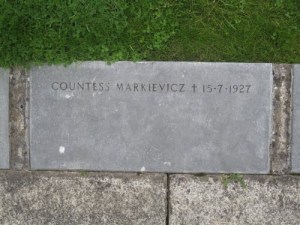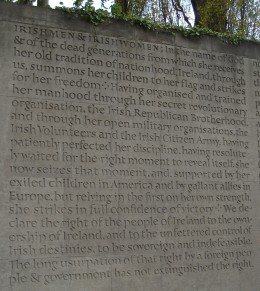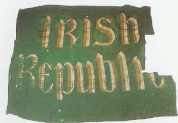Media reports of a range of violent attacks – the shooting of three men in a Blanchardstown public park, recent bomb attacks in Derry and Belfast, a double murder in County Armagh, the conviction of a drug dealer in Ballymena – all have one thing in common, the use of the term ‘dissident republican’. This attribution by the media quite literally comes out of the ‘blue’ – out of police press releases and statements north and south of the border. It makes for a neat package, everything nicely parceled up. No further explanation is required as to who these ‘dissident republicans’ are, what their possible motivation for each separate act is, whether the individual perpetrators share common political objectives, or whether any of the perpetrators is actually a ‘republican’ or even understands what the word means. The public, informed by the media, can take note of the explanation, park the story, and move on with neatly primed prejudices reinforced.
There is nothing new in this. Over the past 40 years the term ‘republican’ has been abused by police, media and politicians. Sinn Fein and the Provisional IRA are the linked bodies most often referred to as ‘republican’ both by members of those organisations and others. While it is undoubtedly true that many members of both organisations were and are genuine republicans in the Tone/Connolly tradition, it is also patently true that many members were motivated by Catholic nationalist sentiment, a not insignificant factor in the splits that occurred during and after the Peace Process.
The differences between nationalism and republicanism have been the subject of two recent blog posts on this site. There is no reason other than convenience and prejudice for the failure of the media in general to separate these two distinct ideologies in the public mind over the past 40 years, and that failure persists in the current use of the blanket-term ‘dissident republican’.
There is no evidence at all that those who carried out these recent crimes have a republican bone in their bodies. On the contrary, those ‘dissident republican’ organisations – the ‘Real’ IRA and the ‘Continuity’ IRA – demonstrate nothing more than a desire to prolong the ‘armed struggle’ against the British enemy that is well on the road to practical disengagement from the six counties. This is a stupid and futile gesture by narrow-minded men and women who refuse to understand what Irish republicanism is really about, explicit in the intent of the United Irishmen of “forwarding a brotherhood of affection, a communion of rights, and an union of power among Irishmen of every religious persuasion” and reinforced by that incisive line from the Proclamation of the Irish Republic “…oblivious of the differences carefully fostered by an alien Government, which have divided a minority from the majority in the past”.
That the shooting of three men in a public park in Dublin, allegedly for ‘anti-social activities’ could be labeled as an act by ‘republican dissidents’ demonstrates at best laziness on the part of journalists and editors and at worst a further attempt to attach a pejorative meaning to the word ‘republican’ that it does not deserve. Whether or not those who ordered the shootings, or those who carried them out, want to gratify themselves by describing themselves as ‘republicans’, that does not make them republicans. They are not. They are criminals.
But there is no evidence offered, and a police briefing to journalists is not evidence, that so-called ‘republican dissidents’ were indeed involved in these shootings, which brings the spotlight to bear on the media. It is important that citizens who understand and commit themselves to republicanism are vigilant and vocal in opposition to the easy abuse of the term ‘republican’ through laziness, ignorance or to promote ideological prejudice on the part of the media for its own ends and to suit the political class which is essentially anti-republican.
Those of us who have taken the trouble to understand what Irish republicanism is and what it signifies need to reclaim the concept, not just from so-called ‘republican dissidents’ (and from the utterly discredited Fianna Fail party), but also from those disseminators of information and misinformation, those moulders of public opinion – the Irish media – abusers of language and of ideas.



